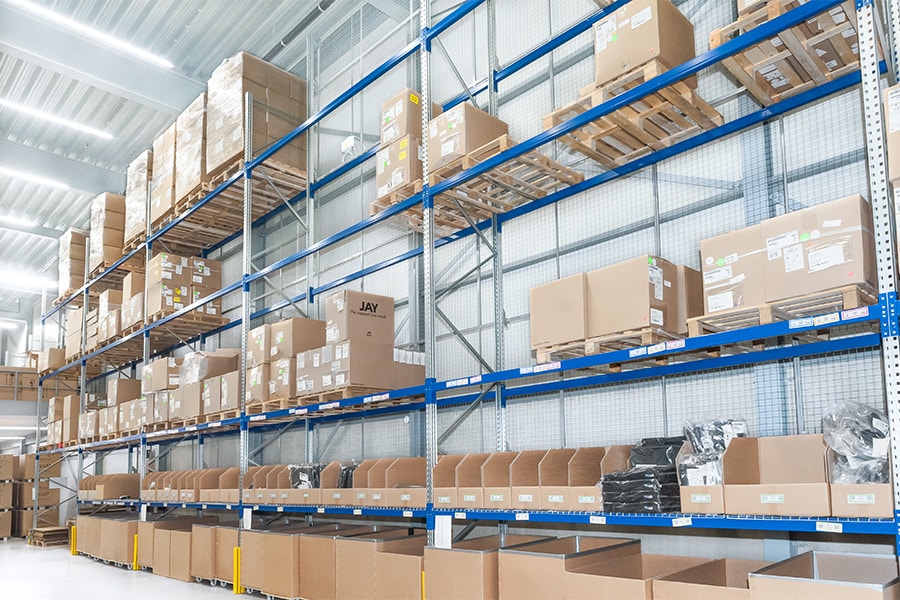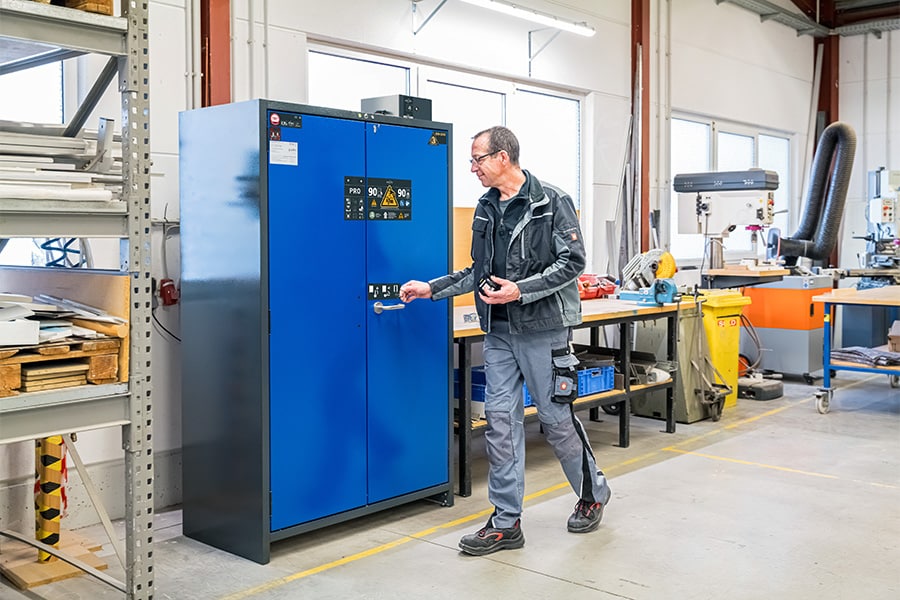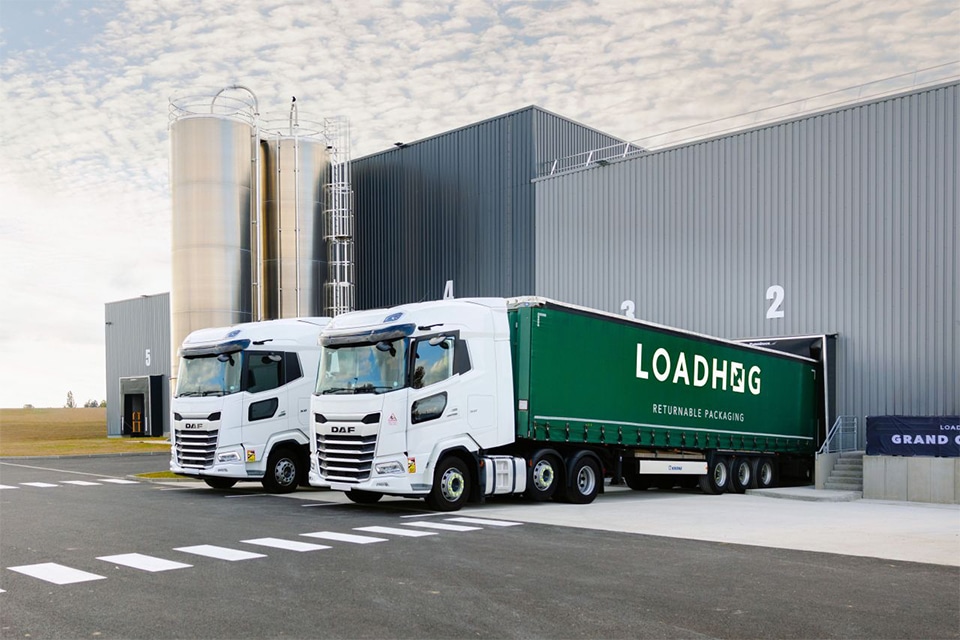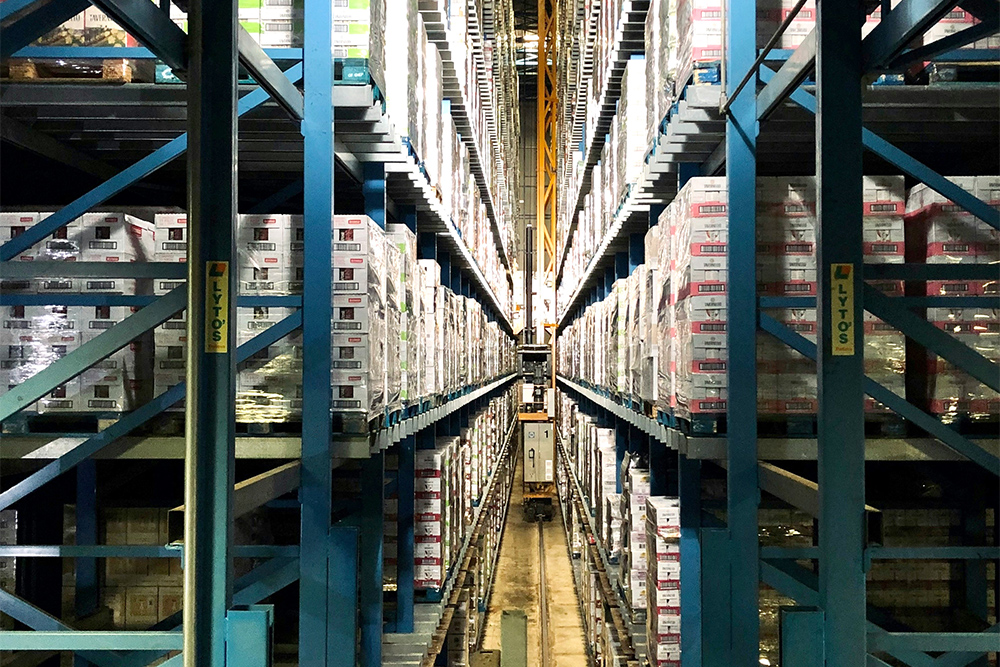
Smart warehousing: the future of efficient storage and distribution
Beyond the barcode ...
In the logistics and supply chain management sector, smart warehousing has long since ceased to be a stranger. On the contrary, it is strongly driven by technological advances and driven by the growing demand for efficiency and speed in distribution processes. These smart warehouses - equipped with advanced automation, robotics, and data-driven systems - have been redefining the way we think about warehousing and distribution for some time. While there are some challenges to consider, the trends are clearly emerging. And some trends have evolved a bit further than others.
Trends in warehousing
- Automation and robotics: The use of robots and automation systems in warehouses is not a new concept, but the technology has made significant advances recently. Robots are now used for a much broader range of tasks, from picking and placing products to packing and sorting shipments. Consequently, efficiency has increased and there are fewer human errors.
- Internet of Things (IoT): IoT technology allows warehouse equipment and systems to be connected, enabling real-time monitoring and data collection. This enables warehouse managers to gain operational insights, improve inventory accuracy and proactively identify maintenance needs.
- Data analytics and artificial intelligence (AI): By using AI and "machine learning," warehouses can analyze vast amounts of data. This allows them to identify patterns, make predictions and optimize decision-making processes. This has a positive impact on inventory management, demand forecasting and route optimization.
- Augmented reality (AR): AR technology supports warehouse personnel by providing visual aids for picking and placing goods, improving work efficiency and accuracy.
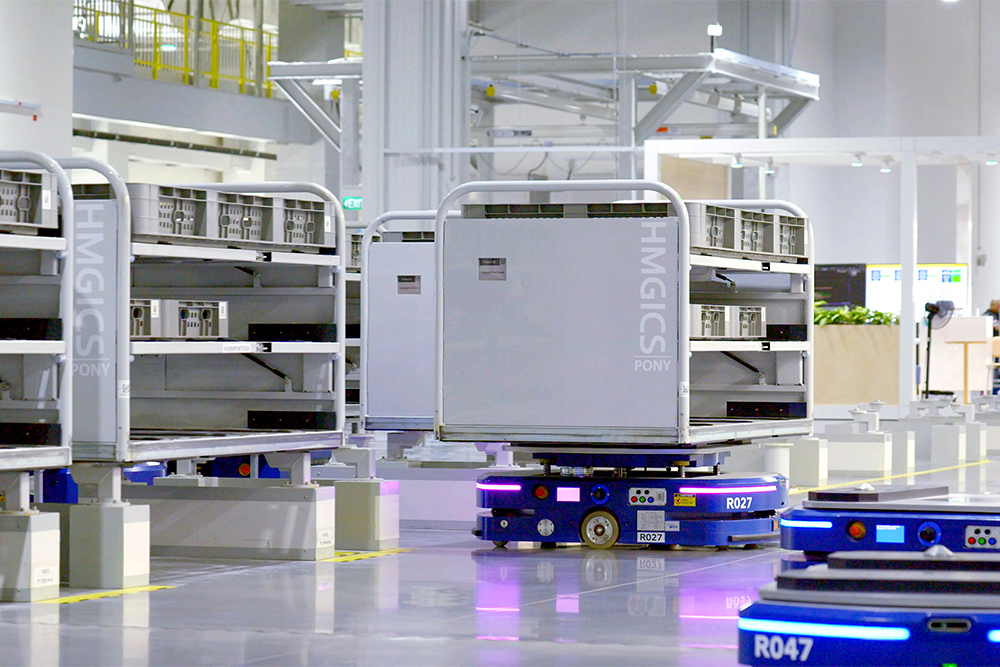
5G and AI as future architects
The future of smart warehousing promises further integration of technologies and even greater automation. With the emergence of 5G technology, the speed and reliability of data transmissions within warehouses will improve significantly, paving the way for more advanced IoT applications and real-time data processing. The development of self-learning systems will further increase the efficiency and effectiveness of warehouse operations, with AI algorithms continuously learning and adapting to new patterns and challenges. This will not only improve operational performance, but also help predict future trends and make strategic decisions. Sustainability will play a key role in the future of smart warehousing. Technologies such as energy management systems and sustainable building materials are already being integrated to reduce the environmental impact of warehouse operations. In addition, innovations in packaging materials and processes will help reduce waste.
Double-edged sword?
The implementation of smartwarehousing technologies offers numerous benefits, no one can ignore. After all, automation allows warehouses to respond faster to changing market dynamics and customer expectations, while improving the accuracy and speed of order fulfillment. But ... that transition also brings challenges, such as the need for significant investment in technology and staff training. In addition, companies must consider cybersecurity risks and maintain data protection at all times.
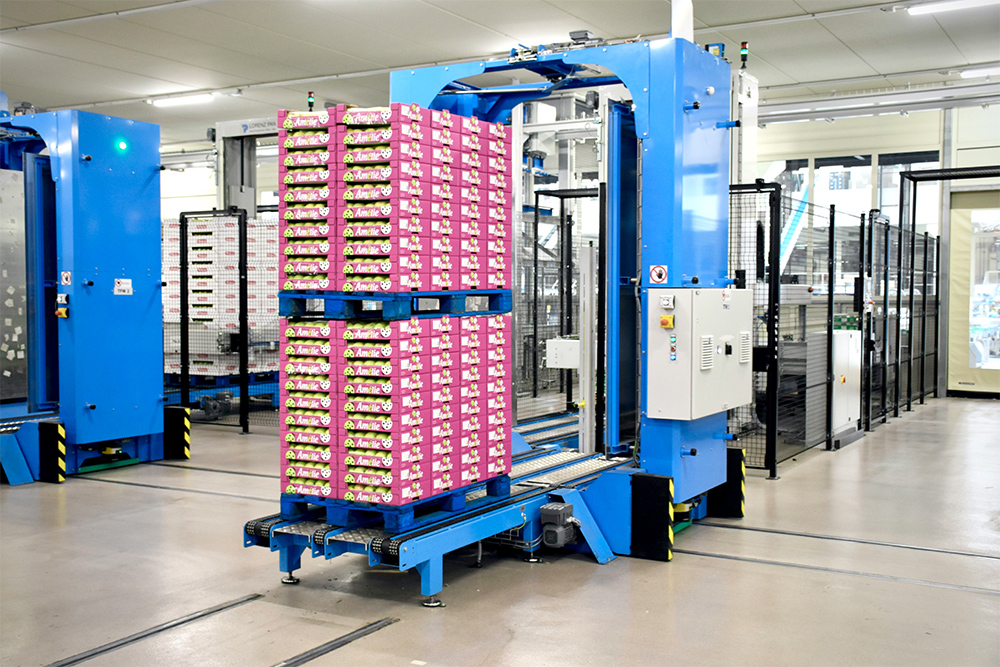
Investing pays off
Smart warehousing is on the brink of revolutionary change in the logistics industry, with the promise of unprecedented efficiency and accuracy. As technology continues to evolve, companies that embrace these innovations will be better positioned to compete in an increasingly connected and dynamic global marketplace. With the right investments in technology and personnel - and taking into account the specific challenges! - companies can harness the full potential of smart warehousing and prepare for the future of logistics and distribution.
